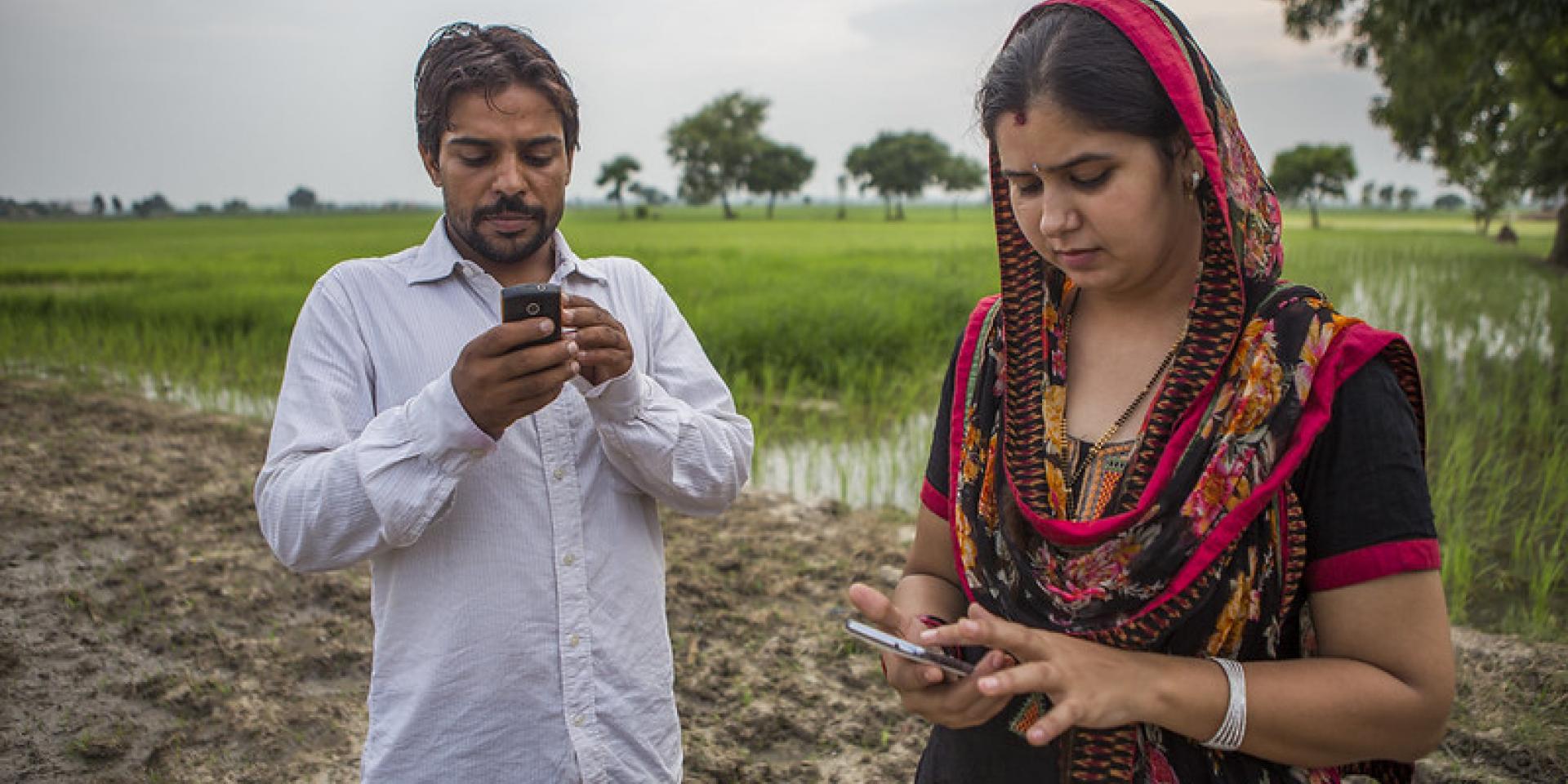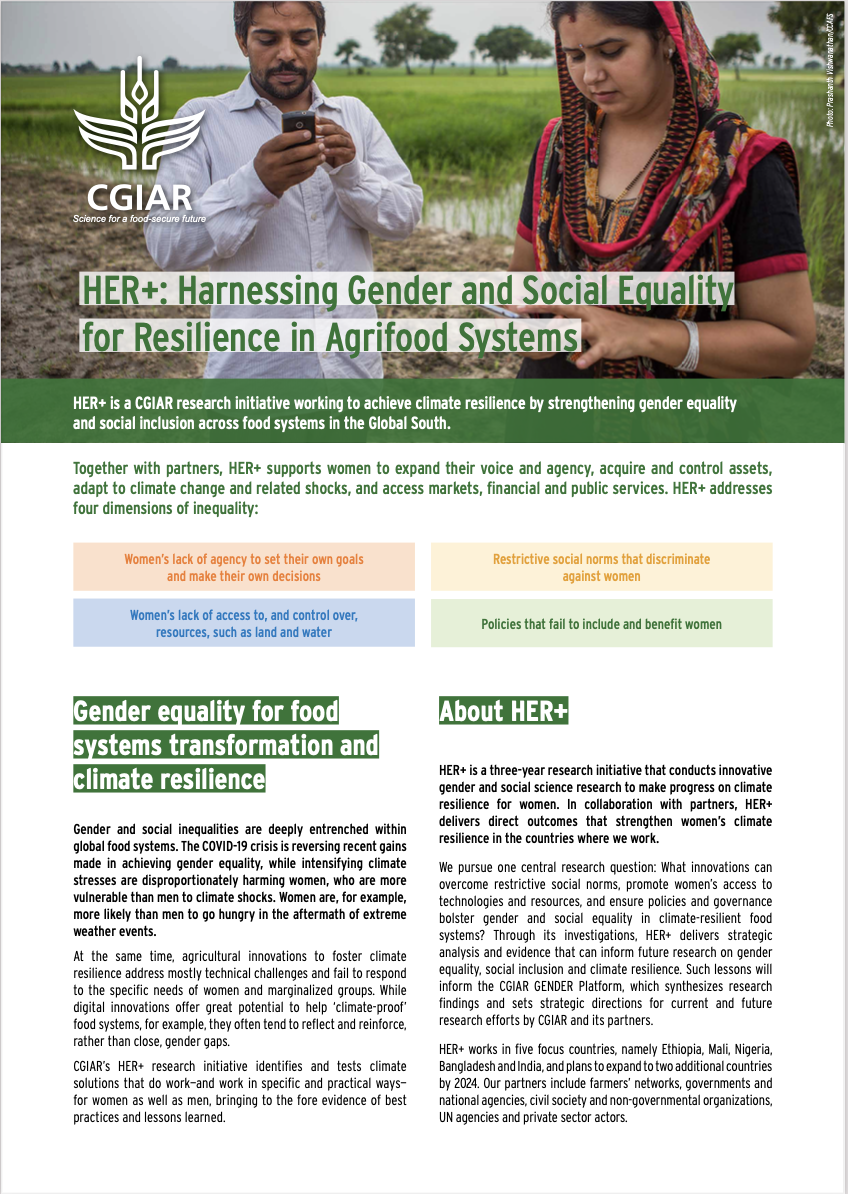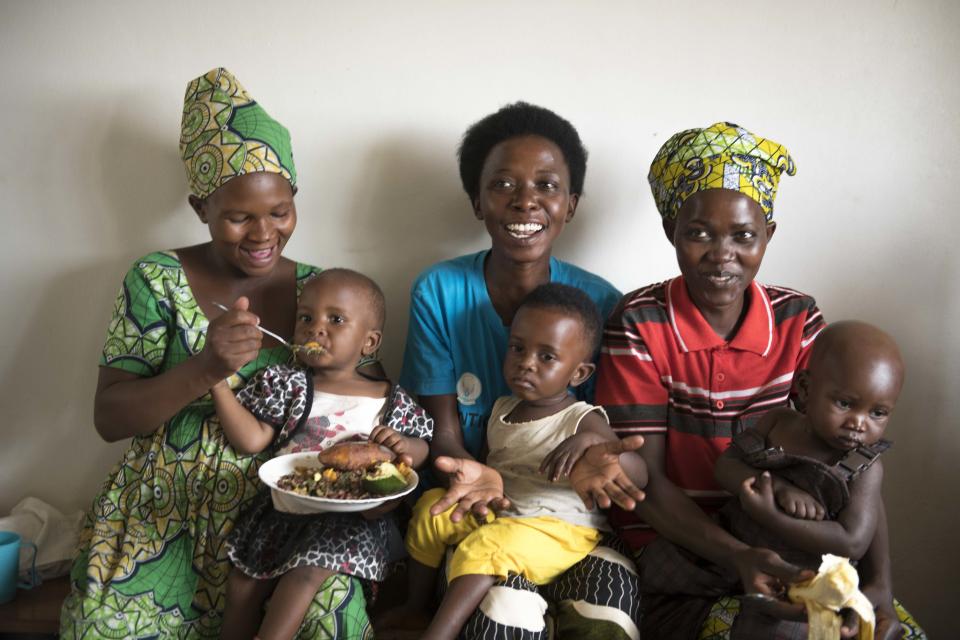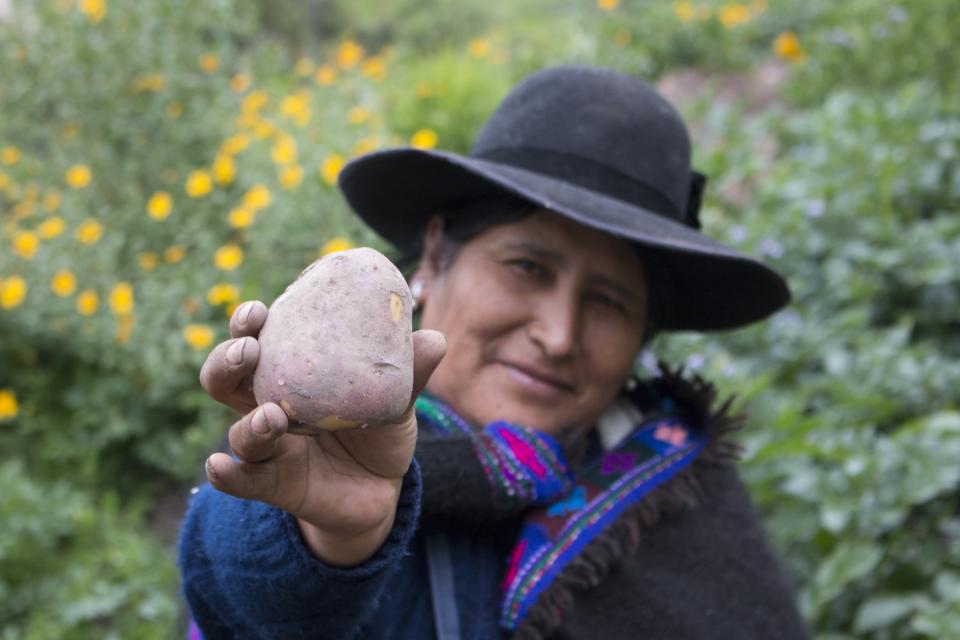How gender equality can transform food systems and protect us from climate change disasters

Arcticle originally posted on CGIAR.ORG.
Enabling women to be equal partners with men in the development and use of agricultural technologies, land and water resources, in household production and consumption decisions, as well as in the formulation of policies and institutions is essential to successfully transform our food systems and create climate resilience for all. However, gender inequalities remain deeply engrained throughout these domains.
Across our food systems, unwritten rules and norms have put men in charge of decisions and livelihoods, while many women carry disproportionate labor and care burdens. This inequality has been further entrenched by climate and weather shocks, the COVID-19 pandemic, political dysfunction, and civil unrest and displacement.
The intensifying impacts of climate change disproportionately harm women and expose social and gender inequalities across the globe. Women have less access to resources, information, and early-warning systems. They are less able to adapt to climate change than men and are therefore mistakenly stereotyped as victims of climate change impacts, while the structural roots of gender inequalities that cause vulnerability are ignored. The World Economic Forum’s Global Gender Gap Report 2021 estimated that the impact of the COVID-19 pandemic increased the time required to close the global gender gap by a generation, from 99.5 years to 135.6 years.
We know that upending the unwritten rules that exclude women from equal and fair participation in food systems can boost resilience among women and that supporting women to adapt to climate change can lead to greater climate resilience for entire communities. Research by CGIAR and others on the gender dimensions of poverty, malnutrition, and food insecurity has shown that progress will stall without significant advancement in bolstering gender equality.
Making climate solutions work for women
Evidence gaps on gender equality’s scale, causes, and solutions are one reason for our lack of progress. For example, technological innovations targeting climate resilience, such as stress-tolerant crops or weather index insurance, are not adequately designed or bundled with social innovations that overcome barriers to their adoption by women. Due to their complexity, they are also not scaled at the pace or volume required to achieve real change.
By the same token, social protection programs — including national programs targeting cash and food transfers to the poor — reach billions of resource-poor women globally, but they are often not designed to address the constraints faced by women or with a climate lens. Evidence that these programs help women build savings and assets suggest the programs also have substantial untapped potential to support women in mitigating the effects of climate change, but more research is needed.
Finally, the institutions in which decisions are made and implemented tend to significantly disfavor women, perpetuating their lack of access to the resources and services that support resilience to climate change.
Initial endeavors to put gender research at the heart of CGIAR raised awareness of the importance of the gender dimensions of technological, behavioral, and social innovations. But there is still an undersupply of strategic and transformative gender research that could otherwise enable women — alongside their husbands, partners, and communities — to adapt to climate change disasters.
Gender and social equality for climate resilience
CGIAR is proposing a new Initiative, Harnessing Gender and Social Equality for Resilience in Agrifood Systems (HER+), that aims to foster climate-resilient food systems by identifying effective innovations to overcome restrictive social norms, promote women’s access to technologies and resources, and ensure that policies bolster gender and social equality.


